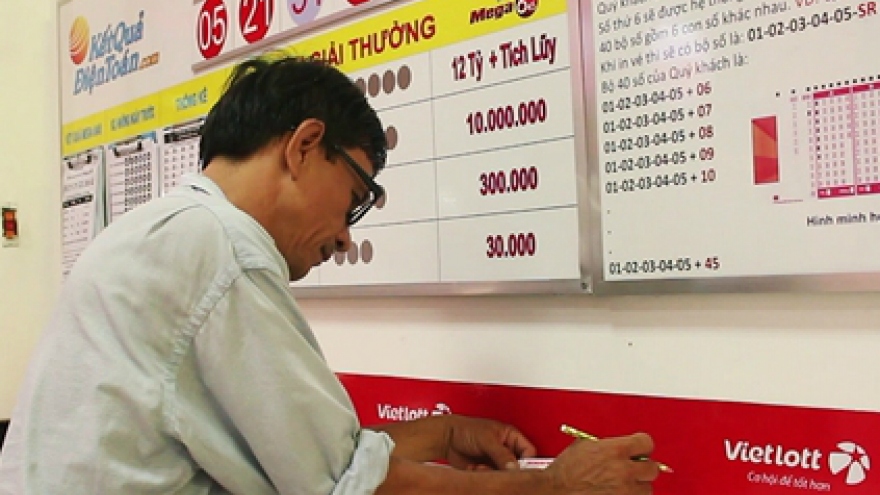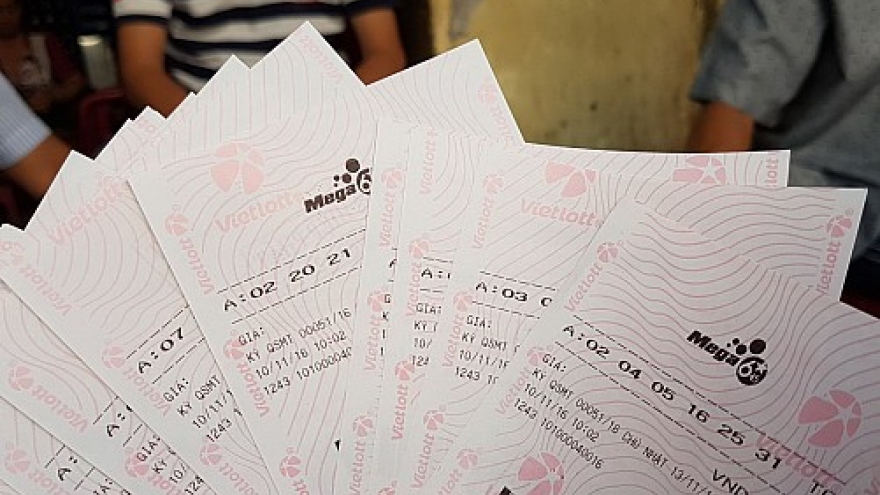The heyday is over
The Vietnamese market is increasingly competitive as the country has opened it up to the outside world.
 |
Vietnam Lottery Company (Vietlott) a few days ago announced the third winner of a VND71 billion (US$3.17 million) jackpot in the new American-style lottery game Mega 6/45. The first two winners pocketed huge amounts of cash. On October 16, a lucky person from the Mekong Delta province of Tra Vinh won a jackpot of VND92 billion (US$4.1 million). On November 2, another from the southern province of Dong Nai got a jackpot of VND65 billion (US$2.86 million).
The unimaginably big jackpots have driven up demand of people who wish to get rich overnight. According to the Mega 6/45 rules, a gamer chooses six numbers from 01 to 45 to create a combination of six numbers, and checks the selected combination printed on the lottery ticket with the draw result to determine if the numbers match. Each ticket costs VND10,000 (44 U.S. cents). The jackpot starts at VND12 billion (US$537,000).
Traditional lottery firms have felt the pinch of the exodus of lottery buyers, with sales of lottery tickets steadily declining. In the meantime, Vietlott tickets can be found almost everywhere, even in rural areas. According to a Vnexpress report, a manager of a traditional lottery firm said ticket sales in recent months have dipped 10-30% due to the rising competition from Vietlott.
To cope with the situation, provincially owned lottery companies in southern Vietnam have decided to adjust up their special prizes by a third to VND2 billion (US$88,000) from the current VND1.5 billion, with effect from next year.
The Southern Lottery Council has even written to the Ministry of Finance accusing Vietlott of wrongdoing, and petitioning the ministry to deal with Vietlott’s alleged irregularities to make sure the firm competes fairly with 21 lottery companies in the southern region.
The council claimed lottery agents in HCMC print tickets for distribution in southern provinces where Vietlott has no agents. This has caused revenue losses for provincial budgets and violated articles 12 and 13 of the ministry’s Circular 1 dated January 2, 2014. Moreover, selling print tickets does not reflect the nature of the American-style lottery game that allows buyers to select numbers as wished. This is against articles 2, 9 and 10 of the ministry’s Circular 136 dated October 3, 2013.
Besides, the council said vendors sell print tickets of Vietlott for more than VND10,000 each at agents, eroding fair competition. Vietlott lottery tickets are retailed at VND12,000 each, VND2,000 higher than its face value. The council said this is in violation of Article 37 of the Government’s Decree 98 issued on August 28, 2013 on lottery ticket distribution.
In addition, the advertising and promotion of the product are unclear in terms of content. Notably, Vietlott said its computerized lottery game would replace the traditional one in the coming time and that the traditional lottery game would be put under review with tickets to be issued once or twice a week. The council has dismissed this information as groundless.
Nguyen Hoang Duong, deputy head of the Department of Banking and Financial Institutions under the Ministry of Finance, has told Vietlott to check and make sure its operations and those of its agents are in line with the prevailing regulations.
In a document sent to the Southern Lottery Council, Vietlott general director Tong Quoc Truong said his firm had told its agents to strictly observe regulations on the computerized lottery game. Nguyen Hoang Dung, an economist from the HCMC Institute of Economics and Management, says in Thoi bao Kinh doanh that Vietlott has three advantages over traditional lottery – huge prizes, flexible and transparent business strategy and professional sales staff.
Traditional lottery firms are used to the easy way of doing business and their staff are highly paid. Recent statistics show that members of the Southern Lottery Council obtained over VND63 trillion in lottery ticket sales in January-September, or 5% higher than earlier estimated. The firms paid over VND17.2 trillion in taxes, rising 4.5% year-on-year and meeting 94% of this year’s target.
The presence of Vietlott is a wake-up call for traditional lottery companies. They need to adopt a different business strategy to survive.



